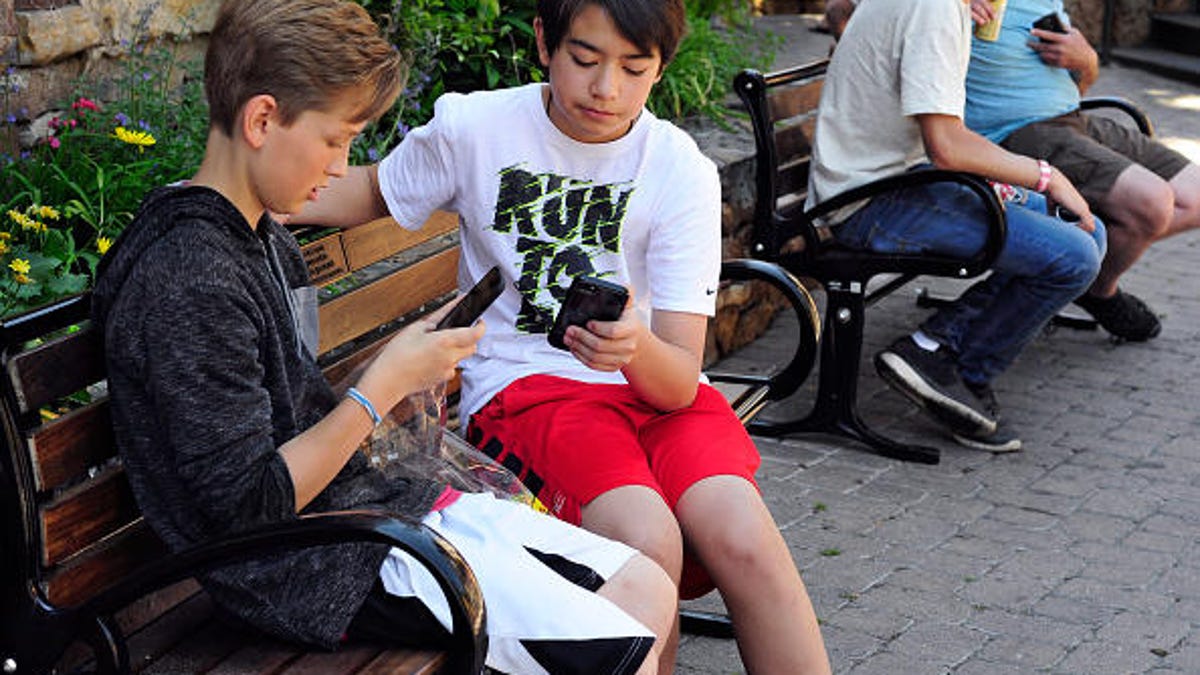Teens pick texting over talking with friends in person, study finds
Most teens think tech companies manipulate them to spend more screen time, and Facebook has become less popular among teens.

Two teenage boys use their smartphones as they sit on a bench.
Teens are being sucked even further into the digital world.
Teenagers are more inclined to text their friends than talk in person, according to a study published on Monday by Common Sense Media, a nonprofit organization that focuses on technology and media education. When asked to choose their favorite way to communicate, 35 percent of teens picked texting, followed by 32 percent who responded that in-person communication was preferred. The results mark a flip in preference since Common Sense's last report in 2012, when 49 percent of teens preferred to talk in person and 33 percent preferred texting.
Teens are also increasingly spending more time on social media platforms. Seventy percent of teens use social media multiple times a day, up from 34 percent in 2012. Snapchat is the main social media site for 41 percent of teens, with Instagram coming in second with 22 percent. The study found that Facebook has become less popular, with only 15 percent of teens choosing it as their main platform, compared to 68 percent in the earlier study. One teenage girl in a focus group for the study said Facebook is for communicating "with my grandparents."
A June study from Pew Research Center also indicated that teens are ditching Facebook for other social media platforms such as Snapchat, Instagram and YouTube.
In addition, 72 percent of teens think some tech companies manipulate them to spend more time on their devices.
The study comes as social media companies find themselves increasingly scrutinized for spreading misinformation. Last week, Twitter and Facebook executives appeared before Congress to answer questions about Russian influence campaigns and misinformation on their platforms.
Other key findings include:
- 57 percent of teens agree that social media distracts them from homework and in-person conversations.
- 64 percent of teens on social media have come across racist, sexist, homophobic or religious-based hate content online.
- 13 percent reported having been cyberbullied and 23 percent said they've tried to help someone who was being cyberbullied.
- 25 percent of teens said they feel less lonely because of social media and 16 percent said they feel less depressed with social media.
This study was based on the responses of 1,141 teens aged 13 to 17 years old. The survey was conducted from March 22 through April 10 in the US.

